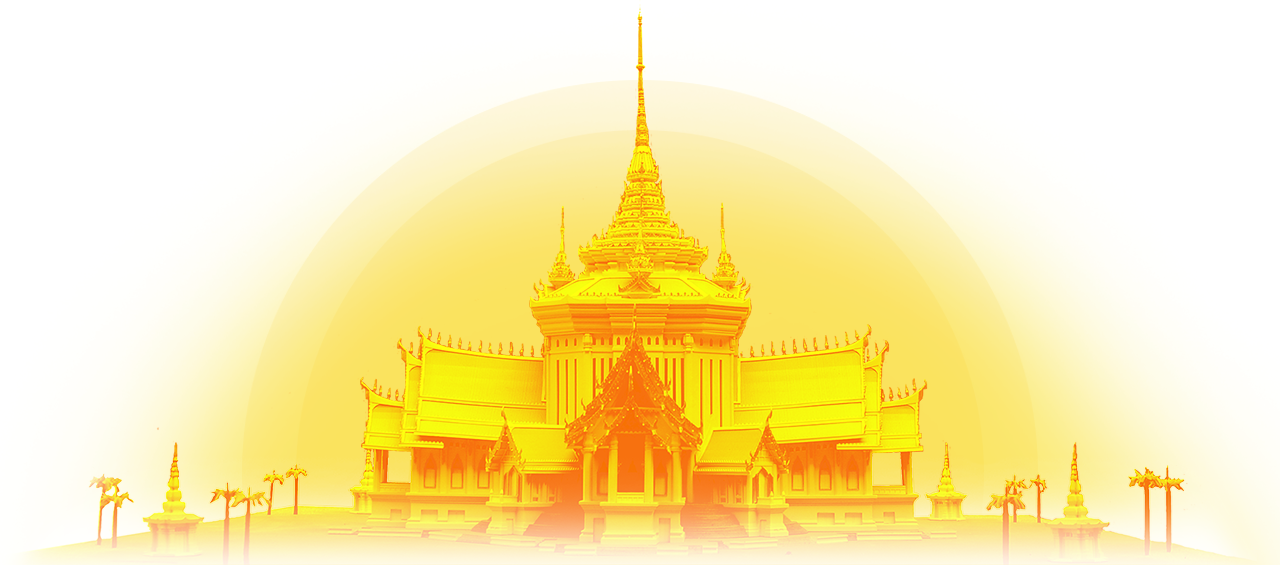- Home
- Dhammakaya meditation
- Basic Dhammakaya Meditation Practice
Dhammakaya Meditation is based on four principles: three methods of concentration and the Principle of the Center. The three concentration techniques are:
.png)
- Meditating on an object of visualization (Kasina),
- Recollection of Lord Buddha’s virtues (Buddhanussati), and
- Mindfulness of breathing (Anapanasati). And (4) the Principle of the Center which is position 7, as shown in the picture below, specifies that these three methods of concentration are all applied simultaneously at the center of the body.
.jpg)
Thereafter, meditation proceeds to successively higher levels by always focusing at the center of the center. This combination of techniques is effective for meditators of all different types.
Dhammakaya Meditation is Both Samatha and Vipassana
The effectiveness of the Dhammakaya Meditation derives from focusing attention at the center of the body and combining three meditation techniques simultaneously. Meditators often debate the efficacy of concentration (Samatha) versus insight (Vipassana). Dhammakaya Meditation employs elements of both. Higher and higher levels of concentration enable personal insight to progress from a more worldly view to Right Understanding and ultimately to Supra-mundane Right Wisdom.
Dhammakaya Meditation Is Not a New Practice
Dhammakaya Meditation is not a new practice as many believe. It is the original Buddha-Teaching. Dhammakaya meditation is the exact path that the Buddha practiced. It directly follows the Noble Eightfold Path which is classified into the three categories of Sila or morality, Samatha or Right Concentration, and Vipassana or Right Wisdom. In combination with the four Satipatthana or Foundations of Mindfulness, the Samatha (concentration) and Vipassana will advance to Right Wisdom pertaining to the compounds (Sankhara) and non-compounds (Visankhara). The Right Wisdom of the Four Noble Truths will be unfolded. Nirvana or freedom from all conditioning and suffering will, thus, be attained.
The Principle of Dhammakaya Meditation Practice
Dhammakaya Meditation is based on four principles: three methods of concentration and the Principle of the Center. The three concentration techniques are: Meditating on an object of visualization (Kasina), Recollection of Lord Buddha’s virtues (Buddhanussati), and Mindfulness of breathing (Anapanasati).
And the Principle of the Center specifies that these three methods of concentration are all applied simultaneously at the center of the body as follows:
- Position 1: The Nostril Aperture
- Position 2: The Eye Socket
- Position 3: The Center of the Head
- Position 4: The Palate Terminus
- Position 5: The Throat Aperture
- Position 6: The Center of the Body (Navel Level)
- Position 7: The Center of the Body and the Proper Position for Meditation (Two Inches above Navel Level).
Please sit in a regular meditation posture, cross-legged as seen in some images of the Buddha, with the right leg resting upon the left [see the picture on the right]. The right hand rests on the left, palms turned upwards, right index finger just touching the left thumb. The body is upright and the mind fully alert. Take a deep breath and relax the body until you feel comfortable. Close your eyelids lightly, do not press them.
In Samatha Vipassana Meditation pracitce, two aids are used: (1) The repetitive word and (2) The object of visualization.
The repetitive word is “Samma Arahang” and the object of visualization is a bright, clear, luminous sphere. Using these aids, we shall draw the mind inward along the path to the center of the body. Such concentration allows the mind components of vision, memory, thought and awareness to come together into one-pointedness. The following are step-by-step Dhammakaya Meditation Practice.
Position 1: The Nostril Aperture
Concentrate with your mind and visualize until there exists a vision of a bright and clear sphere. Let the sphere appear at your nostril, for ladies at the left nostril and for gentlemen at the right nostril. Fix your attention and rest your mind at the center of the sphere. This is a very bright and clear spot, the size of a grain of sand or needle point. Repeat the words “Samma Arahang” mentally three times to sustain the bright and clear sphere at the nostril. This is the first position at which your mind is focused.
Position 2: The Eye Socket
Next, mentally move the bright, clear sphere slowly up to rest at the eye socket – ladies to your left eye socket and gentlemen to your right eye socket. While you are slowly moving the sphere with your mind, fix your attention always at the small bright center of the sphere. As the sphere rests at your eye socket, repeat ment ally the words “Samma Arahang” three times. This is the second position.
Position 3: The Center of the Head
Mentally shift the sphere slowly to rest at the center of your head in line with the eyes. Keep the mind constantly fixed at the bright center of the luminous sphere. Repeat to yourself the words “Samma Arahang” three times to keep the sphere as bright and clear as you can, so that it shines and remains in that position. This is the third position.
Position 4: The Palate Terminus
Roll your eye-balls upward without lifting your head, so that your vision will turn back and inside. Meanwhile, mentally move the luminous and transparent sphere slowly and directly downward toward the palate. Recite to yourself the words “Samma Arahang” three times, to make the sphere even brighter and clearer, and hold it there. This is the fourth position.
Position 5: The Throat Aperture
Mentally move the bright, clear sphere slowly and directly downward to rest at the throat aperture. Repeat the words “Samma Arahang” to yourself three times, to keep the sphere bright and clear and hold it steady. This is the fifth position.
Position 6: Center of the Physical Body
Next, slowly move the clear, luminous sphere directly downward, while keeping your attention focused on the bright nucleus at its center. Bring the sphere to rest at the center of the body, where the breath ends, even with the navel. This is the sixth position. Mentally recite the words “Samma Arahang” three times to keep the transparent sphere bright and luminous, and to hold it steady.
Position 7: Position of Sphere
Now, shift the sphere directly upward two “Aguli” or two middle finger joints above the navel. This is the center of the body and the seventh position. This is the mind’s permanent resting place. Whenever a person or any other creature is born, dies, sleeps or wakens, the Dhamma Sphere which governs the body arises from this position. The Dhamma Sphere is composed of the Vision Sphere, the Memory Sphere, the Thought Sphere, and the Cognition Sphere. During meditation, the Dhamma Sphere appears to float from the sixth position up to the seventh position. The seventh position is also considered to be the center of the body.
Keep the bright, clear sphere resting at the center of the body in the seventh position. Mentally recite the words “Samma Arahang” continuously to keep the sphere still and make it become brighter and clearer. Concentrate so that the sphere shines continuously. Focus your mind at the bright center of the sphere, and at the bright center of each successive sphere that emerges.
Pay no attention to any external sensation. Let your mind delve deeper and deeper into the successive centers as you recite “Samma Arahang”, the Parikamma-bhavana. Even if ants are climbing all over you or mosquitoes are flying all around, pay no heed. Don’t even pay attention to following the breath.
Bring your mind to rest at the center of the center, by envisioning a bright sphere. Your mind should rest steadily and continuously at the center of the sphere. Do not force the mind too strongly. Over exerting the mind will cause a shift in your meditation and the mind will not be able to see.
Do not use your physical eyes to focus on the vision. The practice is only for your mind. Gently train your mind to see a bright, clear, steady sphere. Mentally observe and focus on the bright clear center. Concentrate on the center of each consecutive sphere that emerges from the preceding one. Do not wander to the left, right, front, rear, top or bottom. Always focus on the center of each new sphere which emerges from the bright shining center. Rest the mind there.




